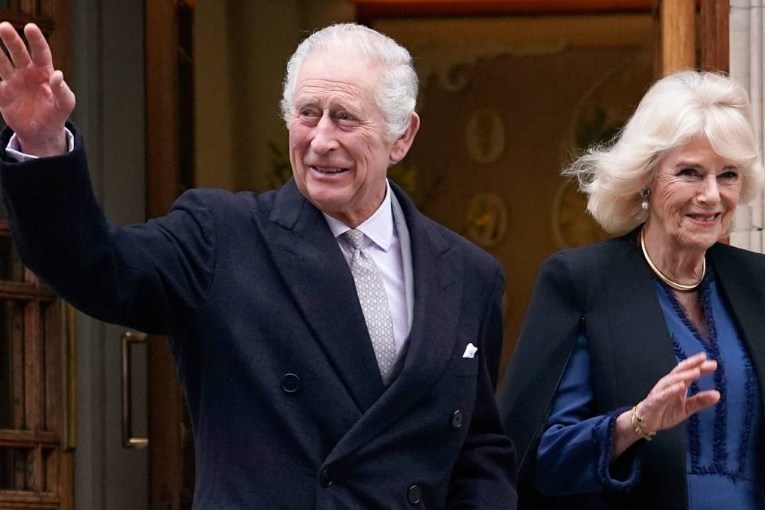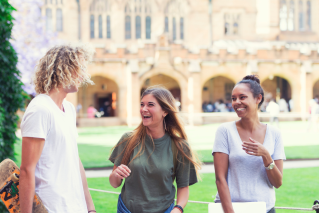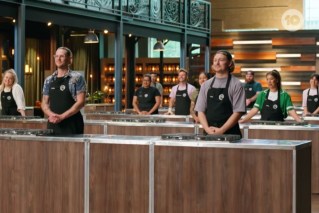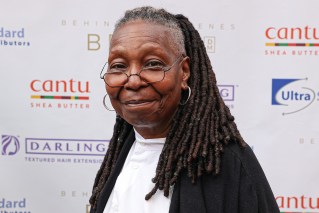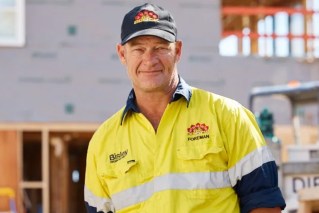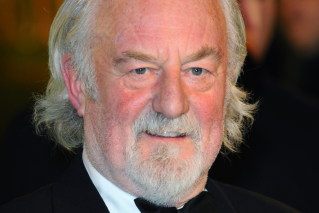Michael Pascoe: A sense of perspective, that’s the gift 50 years in journalism has given me

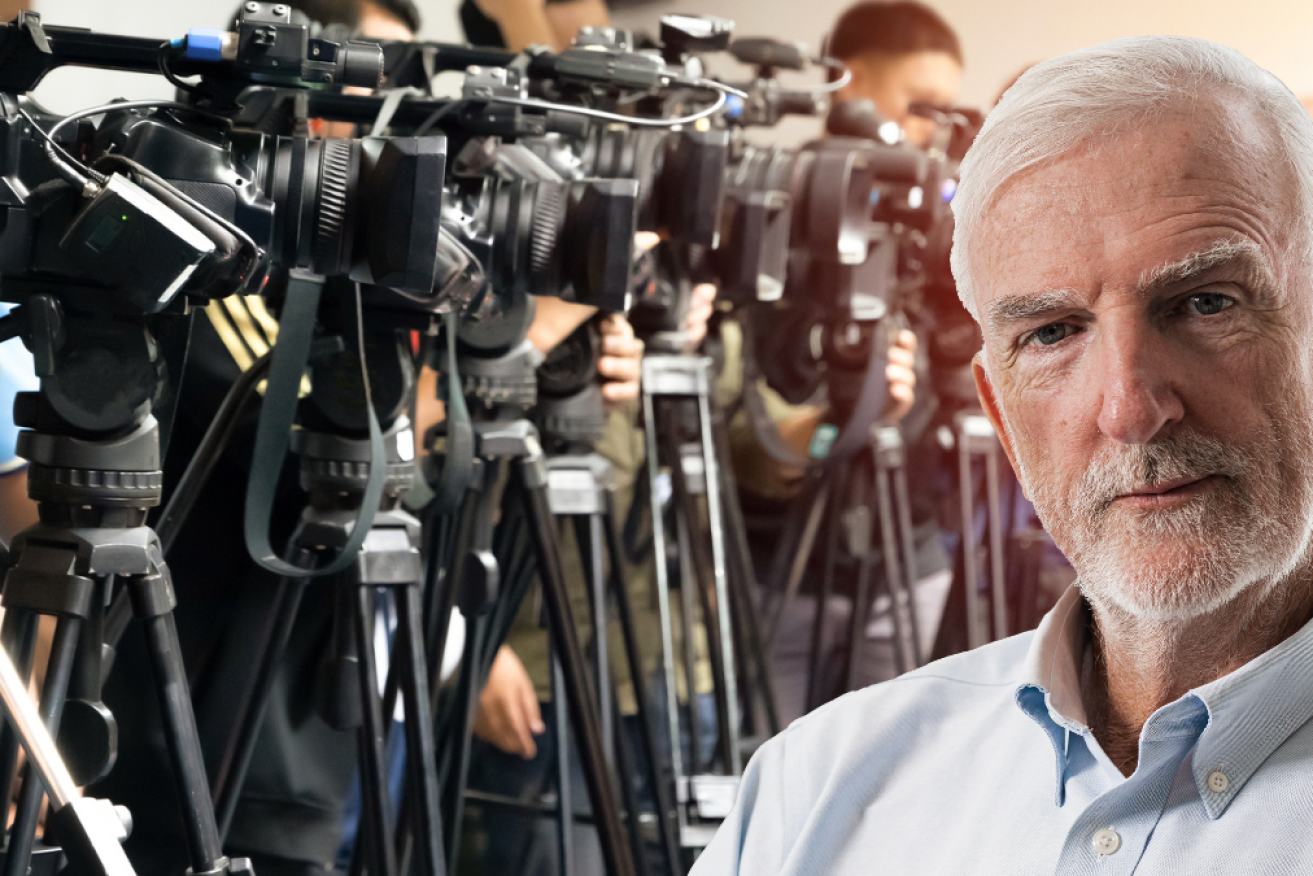
Bearing witness to history, modest or seismic, is a joy, writes Michael Pascoe. Photo: Getty/TND
Fifty years ago this month – the exact date escapes me – I began a cadetship on The Courier-Mail.
Within a few weeks the new cadets were paired off to do next-of-kin death knocks after the Whiskey-Au-Go-Go firebombing. I was still 17.
Welcome to the deep end of the pool. Swim.
The privilege of journalism is its licence and duty to question and observe in order to interpret and report. Over time that should mean you learn a bit about people, systems and the world – the better to filter fact from fake, the better to inform.
So, after half a century of newspaper, radio, television and online journalism here and elsewhere, what have I learned?
Mainly the same things everyone should learn if they keep their eyes and mind open, but with one over-riding imperative that seems unfortunately rare: The importance of keeping perspective about daily noise and bluster, the passing circus.
Keeping perspective means seeing both the good and the bad, not being carried away with fad and fashion, keeping an eye on the bigger picture, on the possible.
The old journalist of cliché is an embittered cynic.
I was warned off that early (author self-promotion alert) in a moment that has remained important to me, important enough to be included in a book.
First year at The Courier-Mail, trying so hard to be older, wiser, harder.
Drinking black coffee, smoking non-filter cigarettes, growing a beard, trying to grow a beard.
Kev O’Donohue was the deputy chief of staff and cadet counsellor, experienced, charitable and wise.
Be sceptical not cynical
I said something that was meant to be smart. Michael, he said, don’t be cynical. Be sceptical, you have a duty to be sceptical, but don’t be cynical. If you’re cynical, you can’t recognise good when you do see it.
KO’D was right. Combined with a dedication to independence – it goes without saying that being a servant to a business or political master is professional destruction – perspective and what I like to think of as optimistic scepticism are the standard.

Typewriters clattered in newsrooms, not computers, when Michael Pascoe’s career began. Photo: Getty
With that thought percolating about the approaching half century, I was struck by a passage in Ian McEwan’s new novel, Lessons. An 11-year-old boy witnesses a serious traffic accident and its aftermath of blood and police and ambulances:
“He began to cry. He moved away so that his father wouldn’t see. Roland was sorry for the man and the woman but that wasn’t it. His tears were for joy, for a sudden warmth of understanding that did not yet have these terms of definition: how loving and good people were, how kind the world was that had ambulances in it that came quickly out of nowhere whenever there was sorrow and pain. Always there, an entire system, just below the surface of everyday life, watchfully waiting, ready with all its knowledge and skill to come and help, embedded within a greater network of kindness he had yet to discover. It seemed to him then, as the ambulances receded with their distant sirens sounding, that everything worked, and was decent and caring and just.”
That 11-year-old view in that moment is sweetly innocent – certainly not “everything” – yet the thrust is what I have seen and been refreshed by as a professional witness for 50 years.
And I have been paid to see the very worst of people, from murders and rapes while working on the police rounds desk and courts up to corporate evil, political corruption and bastardy.
I’ve recorded conmen both petty and fabulously wealthy impoverishing people, watched “the dreams of the dead and hopes of the unborn” sold down the gutter, the catastrophic cost of developing world corruption, observed the opportunity-cost tragedy inherent in leaders locked into the status quo instead of striving to maximise our potential.
Yet people are overwhelmingly good. Margaret Thatcher was totally wrong – there is ‘Society’ and it is magical in what it achieves and can achieve. It is Society, all of us, that makes everything possible, including the mega-rich who seem to think it’s all their own work.
Never forget no person is an island
In reply to a tweet about the abandonment of COVID transmission suppression, Professor Brendan Crabb wrote: “I often face libertarians who I suspect are not sufficiently aware of how reliant they are on co-operative society for all of what they have and do.”
To which someone added the adage that libertarians are like house cats: Absolutely convinced of their fierce independence while utterly dependent on a system they don’t appreciate or understand.
For many years I enjoyed a study blessed with a broad, medium-distance view of Sydney, a sweep from North Sydney over the traffic on the bridge to the CBD towers and beyond to the south to almost see planes landing at Mascot.
It was possible to look at that panorama and be awed by the thought of it working, the millions of connections and services that our society evolved and maintained, spanning the globe, to make it possible, to keep it mostly humming.
The more you experience and know of life, the more the appreciation of how deep and wide society should be.
Long before reading that McEwan paragraph, a flash of emergency services lights on the bridge could trigger some of the 11-year-old’s wonder – the appreciation of our safety net, of carers, of help.
It goes much further though – the caring professions only the most obvious examples.
Attend a public works engineers’ conference and leave with respect and appreciation for the people who clean our cities and towns, design and maintain our roads, slash the weeds, provide our water and dispose of our waste.
Take in the vast public transport network delivering people to the myriad office lights – those glittering towers where the work within makes possible the services, the funding and planning and building and growth.
Go to the supermarket and marvel at how many people co-operated to bring such a cornucopia to your fingertips, from South Sea Islanders picking our crops to the factories and truck drivers and shelf stackers and checkout operators.
Hail a taxi and consider the driver’s life and aspirations. In my city, it’s nearly always a man born somewhere else, here putting in long hours for not much money, striving for a better life in this society for his family.
The radiant glow of true community
And that’s just a small sampling of the economics, the mix of capital and labour delivering.
Above and throughout is the community glow of our society: The volunteers, the helpers, the chat with the neighbour down the road, the comfort of a coffee shop, the kids sports, the kind word.
Everything we take for granted is miraculous in its entirety.
Which is why it is so precious, why if you keep perspective about this society, it is worth guarding, worth protecting from those who would damage it whether through ignorance, heartlessness, greed, or carelessness.
It’s why it’s worth trying to shed a little light on what really matters, worth supporting the good fight, not tolerating those who would diminish our society and the potential of our people.
Healthy, optimistic scepticism helps dismiss the chancers and charlatans who strut our stage, the substance-free windbags forever grabbing headlines.
Keeping perspective on that big picture reduces the noise, whether it’s from warmongers talking their own book, idealogues pushing narrow barrows, or the hacks only focused on political advantage. (Did someone mention #RoboDebt?)

Climate change is the war of our times, writes Michael Pascoe. Photo: AAP
You might notice there seem to be a few veteran journalists concentrating more on that big picture, offering perspective.
The venerable Ross Gittins who has been at this a bit longer than me hones in on it, as demonstrated in his first column back from holidays, an apology to his grandchildren for not fighting the war of our times – climate.
Colleague Alan Kohler is in those very trenches on these pages more often than not.
For the children, always
That book I might have mentioned is concerned with the heritage we provide our children, our children who are our legacy.
So that’s the core lesson I’ve learned over half a century in journalism.
But, being honest, there’s been something else as well: If it’s the job you’re meant to do and you’re a little lucky and work at it, it’s the only thing worth doing.
Last month Mike Carlton tweeted his own anniversary, a decade more than mine.
60 years ago – Monday, Jan 7, 1963 – a nervous, 16 yr old from Chatswood arrived at the ABC Newsroom in Kings Cross to become a cadet journalist. Clattering typewriters, clouds of cigarette smoke, squawking police radios, the sickly smell of carbon paper..I loved it from day one.
— Mike Carlton (@MikeCarlton01) January 6, 2023
Yes, there was all that in The Courier-Mail of 1973, too. And I had a new purple suit for the occasion, flares of course.
It was thrilling, stimulating. From the start, it was always about learning what you did not know so you could have the delight of telling people things they did not know.
It has been fun and frustrating and challenging and I’ve been forever grateful for the opportunity. There’s nothing else I’ve ever wanted to do.
Thank you for reading.
